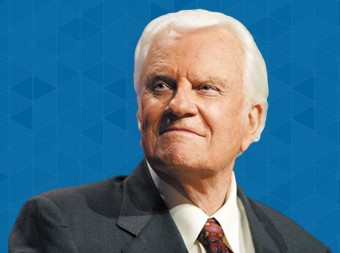Derek Chauvin
Posted by Temmy
Tue, April 13, 2021 10:11pm
Derek Chauvin trial live: Defense witness says Chauvin's use of force against George Floyd was 'justified'; Prosecution rests

The prosecution rested its case Tuesday and the defense began calling its witnesses to the stand in the murder trial of former Minneapolis police officer Derek Chauvin, charged in George Floyd's death.
Former police officer and defense use-of-force expert Barry Brodd, who trained officers for 35 years, told jurors Chauvin was "justified" in his use of force - the first witness to make the statement.
"I felt that Officer Chauvin's interactions with Mr. Floyd were following his training, following current practices in policing, and objectively reasonable," Brodd said.
Several Minneapolis police officers, including the police chief, along with local police trainers and national use-of-force experts, previously testified that Chauvin's actions were not justified.
Where the trial stands: Over the course of 11 days, prosecutors called 38 witnesses to the stand and played dozens of bystander, surveillance and police body-cam videos in a bid to prove Floyd died due to Chauvin's knee on his neck for more than nine minutes.
The defense, meanwhile, argues Floyd's hypertensive heart disease and ingestion of meth and fentanyl, together with the struggle with police, led him to suffer from heart strain and ultimately die. But prosecutors countered the defense claims by openly discussing Floyd's health issues, as well as the drugs present in his system and in the SUV he was in prior to his struggle with police.
Chauvin is charged with second-degree murder, third-degree murder and second-degree manslaughter in Floyd's death in police custody on May 25, 2020.
Latest updates:
The judge sent jurors home for the day and told them witness testimony would resume around 9:15 or 9:30 a.m. CT Wednesday. Attorneys and the judge continued to discuss issues after jurors left.
During the court's lunch break Tuesday, the family of George Floyd and their attorneys stood outside the courthouse alongside the family of Daunte Wright, who police fatally shot in nearby Brooklyn Center during a traffic stop Sunday.
Minneapolis Police Officer Nicole Mackenzie, who previously testified for the prosecution, returned to the witness stand Tuesday to give defense testimony to show both what the officers who arrested George Floyd had been trained to do in the Minneapolis police academy.
Earlier, two witnesses to Floyd's arrest, his ex-girlfriend Shawanda Hill and a Minneapolis park police officer, testified for the defense. A former police officer and a retired Hennepin County paramedic also testified about Floyd's drug-related arrest in 2019 in Minneapolis.
As court wrapped up Monday, Hennepin County District Court Judge Peter Cahill told jurors "we're getting close to the end" of the trial. He said he expects the defense to finish its evidence by the end of the week, with closing arguments expected Monday. That's when the jury would be sequestered. "So, pack a bag," he told them.
Defense use-of-force expert says 'Derek Chauvin was justified'
After facing several prosecution witnesses who testified about police use of force in Floyd's death, the defense called Brodd, a police-use-of-force expert, to provide a counterpoint for the jury.
"I felt that Derek Chauvin was justified, acting with reasonableness," he said.
Brodd said he worked in law enforcement for 29 years and taught use of force for 35 years at the Santa Rosa Public Safety Training Center in California. He said he reviewed more than 140 cases for use of force and has testified in court 10 times as an expert witness in police use of force.
Brodd testified in 2018 in the trial of Chicago Police Officer Jason Van Dyke, charged in the shooting of 17-year-old Laquan McDonald in 2014. Brodd testified Van Dyke's use of force against Laquan McDonald was justified. Van Dyke was later found guilty of second-degree murder.
In the Chauvin trial, Brodd said he's been paid $11,400 so far for his examination of the case and his testimony. He said he's found that police forces had been improper "several times." He said he reached out to the Minneapolis Attorney General's office and offered his services, but was not retained.
People under the influence of drugs "may not be hearing what you are telling them to do," Brodd said. They may go from compliance to extreme non-compliance "in a heartbeat," he said.
Brodd said it was "objectively reasonable" for Chauvin and the other officers to use the level of force they exerted when they tried to put Floyd into the back of the police patrol car because Floyd was resisting. He said he based his opinion on his study of various videos.
The law enforcement definition is that two or more people constitute a crowd, Brodd testified. He said the crowd watching the police struggle with Floyd grew in size and became more vocal. "I could see that Mr. Chauvin's focus started to move from Mr. Floyd to the crowd," said Brodd.
He said the level of force the officers used to place Floyd on the ground was also "objectively reasonable," though he added: "I don't consider a prone control as a use of force."
"It's safer for the suspect and the officer to keep him in that prone control," even if that person were intoxicated by drugs or other substances, Brodd said. He said such a person could aspirate and choke if placed on her or his back.
Although Brodd testified that he did not believe the prone control position represented a use of force and was not dangerous, he acknowledged that the Minneapolis Police Department trains officers to move suspects from the prone position to a side recovery position as soon as possible to avoid potential breathing difficulties.
During cross-examination, prosecutor Steve Schleicher got Brodd to acknowledge that the combination of Chauvin's knees, body weight and police gear on top of Floyd "could" cause pain and be considered a use of force. That answer contradicted Brodd's testimony under direct examination.
Schleicher also drew acknowledgement from Brodd that a reasonable police officer would follow the training of her or his police department, and that an alleged passing of a phony $20 bill would be considered a low-level offense regarding police use of force.
"You can't use force on someone just because they're large, true?" Schleicher asked. "Correct," Brodd said.
Schleicher asked Brodd whether a bystander who did something that an officer found "threatening" or annoying would justify use of force against a suspect. "Correct," responded Brodd.
Brodd repeatedly responded "yes" when Schleicher asked whether a reasonable officer should take note that a suspect appeared to have passed out, stopped breathing, and did not have a pulse, and then adjust his or her use of force accordingly.
Schleicher presented a still photo that showed Chauvin's left foot was off the ground while his knee was on Floyd. He asked Brodd if that meant Chauvin's knee was exerting more pressure on Floyd. Brodd said the answer would depend on whether Floyd had moved, causing Chauvin to shift position.
Schleicher's line of questioning enabled the prosecution to re-play, yet again, audio and video of Floyd struggling and saying he could not breathe. Brodd acknowledged that Floyd's cries "could" mean he faced a potential threat of positional asphyxia.
"And in that context, a reasonable officer would at least acknowledge and consider the possibility that what they're doing is causing a problem, wouldn't they?" Schleicher asked.
"It appeared to me with that video that he was still struggling," Brodd said.
"Struggling or writhing?" Schleicher asked.
"I don't know the difference," Brodd said.
Schleicher then asked Brodd if, during the course of his case review, he noted Floyd saying "my neck hurts," as heard on police body-cam video.
"I heard it. I did not necessarily note it," Brodd said.
When Nelson, the defense attorney, resumed questioning, he asked if a reasonable police officer would lose his authority to maintain a restraint if a suspect stopped resisting and became compliant. "No," replied Brodd.
Brodd said the moment where, according to video of the incident, a silent Floyd raised one leg and one of the officers pressed it back down "possibly" could have represented resistance. Medical experts called to testify by the prosecution previously testified their belief that Floyd's leg motion represented a reflex action to a seizure that signaled his brain had no oxygen.
"Is that sort of the problem with snippets?" asked Nelson. "They don't show the whole picture," replied Brodd.
In final questioning, Schleicher again asked Brodd if the prone restraint caused Floyd pain, and Brodd again said the restraint "could" cause pain. Schleicher, appearing frustrated, asked Brodd if he saw the autopsy photos of bruising on Floyd's body. Brodd said no.
George Floyd's nephew: 'To the world, I just simply say: Damn, again?'
The family of George Floyd and their attorneys stood outside the courthouse Tuesday afternoon alongside the family of Daunte Wright. Police fatally shot Wright, a 20-year-old Black man, in nearby Brooklyn Center during a traffic stop Sunday in what the police chief called an "accidental discharge."
Civil rights attorney Ben Crump said Wright's family was now facing what Floyd's family was facing nearly a year ago - "the unimaginable of losing a family member to police excessive force."
"It is unbelievable — it is just something I cannot fathom that in Minneapolis, Minnesota, a suburb 10 miles from where the Chauvin trial regarding George Floyd was taking place, that a police officer would shoot and kill another unarmed Black man," Crump said.
George Floyd's brother, Rodney, said he watched the police bodycam video of Wright's shooting and saw "a scared young kid."
"As Black folks, we've been here for 400 plus year, and that young man — we've been running ever since from these police officers for trying to kill us. Back then it was called the slave patrol. Now they call it the police. So I saw the look in that young man's eye — the same terrified look I had numerous times when I got pulled over by the police," Rodney Floyd said.
Brandon Williams, George Floyd's nephew, sent his condolences to the Wright family, offering "love, support and prayer."
"We've been in a similar situation," Williams said. "To the world, I just simply say: Damn, again? And when I say damn, again, I mean another Black man or woman killed at the hands of police using excessive force."
Williams called on officers "to be held accountable, charged and convicted."
"In the middle of the Derek Chauvin trial for murdering my uncle George Floyd, in snow and freezing weather conditions, we came to stand with this family," he said. "It's unacceptable. When is enough enough?"
Floyd friend says being in the courtroom 'opened up' old feelings.
Trae tha Truth, a rapper from Houston who knew Floyd for 15 years, said he flew into Minneapolis on Tuesday to watch court proceedings. He said sitting in the courtroom "opened up" old feelings because there were lots of things he had not seen on social media.
"I just came in for this part right here, but from what I've seen, none of this stuff is valid. If you heard, he was more scared," he said.
He organized a march in Houston last June that turned out about 80,000 people to support Floyd's family. "We call him a gentle giant and that's exactly what was seen in that video," he said. "People say resist - he may have not instantly (obeyed commands) but he wasn't fighting the officers, he wasn't aggressive at all."
Training officer returns to the stand to testify on excited delirium training
Minneapolis Police Officer Nicole Mackenzie, who previously testified for the prosecution, returned to the witness stand Tuesday to give defense testimony to show both what the officers who arrested George Floyd had been trained to do in the Minneapolis police academy.
Mackenzie said training about excited delirium is given to police officers in the Minneapolis police academy. But there was no evidence that Chauvin, a veteran officer, received such training. Judge Peter Cahill said her testimony is meant to explain why Officer J. Alexander Kueng could be heard on a video citing excited delirium as what he believed had been Floyd's condition.
Mackenzie said the trainers teach that someone who has excited delirium may be incoherent or removing their clothing because they are hot and sweating. She also testified that the person may be confused, unable to respond to commands and exhibiting far higher than normal strength. The training recommends that Emergency Medical Service assistance should be requested early for such a person.
She said police officers typically may need to "get more resources."
Prosecutor Matthew Frank weaponized the cross-examination. He drew Mackenzie's agreement that the officers failed to do any cardiopulmonary resuscitation or turn Floyd from his stomach onto his side so he could breathe more easily -- as taught in the Minneapolis Police Department's training for someone who may be exhibiting excited delirium.
Minneapolis park police officer and former George Floyd girlfriend recount the 2020 struggle with cops
Peter Chang, an officer with the Minneapolis Park Police, said he self-dispatched himself to the Floyd's struggle scene after hearing a police radio call for back-up assistance. His testimony was designed to show his concern about the safety of the officers who struggled with Floyd and were simultaneously being criticized by bystanders.
The group was very aggressive" toward the officers, said Chang, responding to questions from defense attorney Eric Nelson.
When Chang arrived at the Cup Foods on May 25, 2020, officer J. Alexander Keung asked him to identify Floyd by running a law enforcement records check in his car's computer. Chang said the officers then directed him to watch the car where Floyd had been.
Nelson played video from Chang's body camera so Chang could testify about his observations of the scene. Chang said a crowd developed as the police struggle with Floyd escalated.
Saying he "was concerned for the officers' safety, too," Chang testified that he split his attention between watching the crowd and watching the car with the two people who had been with Floyd. Additional video from Chang's body camera showed that the others were Shawanda Hill, a former Floyd romantic interest, and Morries Hall, who has said he will invoke his Fifth Amendment right not to answer questions if he's called to testify.
He's making it more difficult," Chang could be heard saying to the pair about Floyd as the struggle with police continued.
Louder cries from bystanders at the officers subduing Floyd could be heard as the video and audio recording from Chang's body camera played for the jury.
The video footage also gave the jurors their first evidence of Hill's concern about Floyd when she realized that he had been injured.
Chang mentioned that Floyd appeared to have been hurt. "They hurt him?" Hill cried out. "He might have hurt himself," Chang replied. "Can I just see what they did to him?" Hill asked.
Chang acknowledged that once he walked back across the street where Hill and Hall waited, he could no longer see what was happening to Floyd. He also acknowledged that the other officers did not make a police radio call for assistance.
Hill testified earlier Tuesday that she was at the Cup Foods store where Floyd was suspected of passing a phony $10 bill, and ran into him there. She said Floyd was "happy, normal, talking, alert," in the store.
Hill said she got into a car with Floyd and he suddenly fell asleep. He was sleeping when two employees came to the car about the alleged fake bill, and they had a hard time waking him, Hill testified.
"I tried a couple of times (to awaken Floyd), but then I let it go for a minute, because I was on the phone," Hill testified. She said Floyd woke up when police officers approached the car.
Hill's testimony appeared to support defense arguments that Floyd was sleepy because he had taken non-prescription pills before police confronted him and the struggle began.
Hill also testified that Floyd became "very" alarmed when he realized that the officer who approached him had drawn his gun.
Former Minneapolis cop and retired paramedic testify for defense on Floyd's 2019 arrest, drug use
The first witness for the defense on Tuesday was retired Minneapolis police officer Scott Creighton who testified so the defense could show Floyd's behavior during a 2019 police stop of a car in which he had been a passenger.
Defense attorney Eric Nelson introduced video from Creighton's body camera that showed Floyd in 2019 resisting Creighton's commands to show his hands and keep them on the dashboard. Floyd repeatedly asked police officers not to shoot or beat him up, the video showed.
Creighton and other officers ultimately got Floyd out of the car and handcuffed him. Responding to cross-examination questions by prosecutor Erin Eldridge, Creighton said Floyd seemed incoherent.
Michelle Moseng, a retired Hennepin County Medical Center paramedic, followed him on the witness stand. She testified that she spoke to Floyd after he was taken into custody in the 2019 drug-related arrest. Her testimony was aimed to show the effect that drug use may or may not have had on George Floyd.
"It was quite hard to assess him. He was confused," Moseng said of the incident. She said Floyd told her he'd taken multiple opioid-based pills every 20 minutes and then another pill as former Creighton and other officers apprehended him. She added that Floyd told her he "was addicted."
Moseng said she took Floyd's vital signs; defense attorney Eric Nelson showed her a copy of her records from time to refresh her memory. His blood pressure was 216 over 160.
Based on that reading of high blood pressure and other medical issues, she said he needed to go to the hospital. It took some time to convince Floyd to go to the hospital, Moseng testified.
During cross-examination, prosecutor Erin Eldridge's questions led Moseng to agree that while Floyd's blood pressure had been high, all his other vital signs were normal.
Jurors have repeatedly heard George Floyd's last words and seen images of him dying on a Minneapolis street. But on Monday, they got a different picture of him: Family photos taken throughout his life, narrated by the memories of his younger brother, Philonise.
A baby nestled on his mother's chest. A teen leaning over a textbook. A basketball player on the South Florida Community College basketball team. A father holding up his daughter.
Philonise Floyd, 39, told jurors stories about growing up with his "big brother" as prosecutors showed the old photos. He choked up seeing the image of George - nicknamed "Perry" after his father - and his mother. "I miss both of them," he said.
He testified as a "spark of life" witness to give jurors a better sense of who George was. A 1985 Minnesota Supreme Court ruling allows prosecutors to humanize deceased subjects. "The victim was not just bones and sinews covered with flesh, but was imbued with the spark of life," the court said.
Source
|










